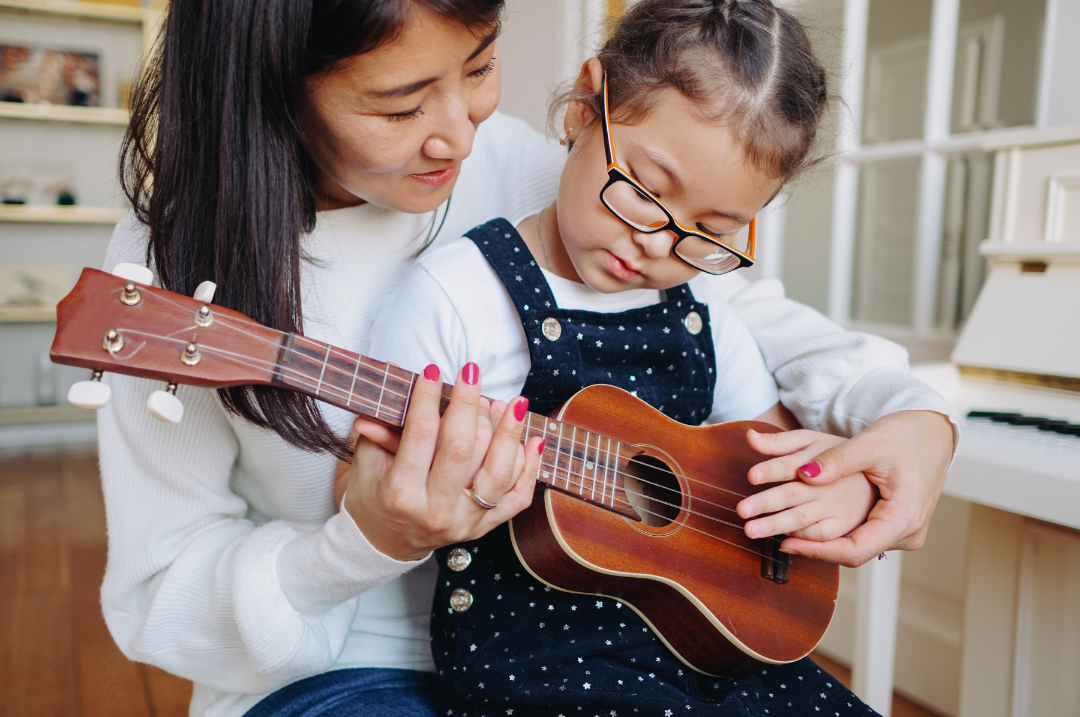One of the most beautiful aspects of music is its ability to bridge gaps—whether cultural, emotional, or generational. Intergenerational music-making brings people together from different age groups, fostering an opportunity for connection, joy, and renewed sense of community. We believe these shared experiences enrich the lives of everyone involved, from the youngest to the oldest.
At JB Music Therapy, we’ve seen firsthand how evidence-based intergenerational music therapy programs can transform a group. A familiar melody can transport an elder back to their childhood, while a young child, hearing that same song for the first time, discovers a whole new rhythm and sound. These shared moments—whether through singing, playing instruments, or simply listening together—have a way of reminding us that music is something to be shared.
Music as a Lifelong Connection
From the earliest moments of life, music plays a vital role in shaping our brains and experiences. Babies in the womb respond to music before they are even born, and mere moments after birth, a newborn instinctively turns toward familiar voices and sounds, shaping early development in profound ways.
There is compelling research evidence that music enhances memory, learning, and social skills, but what’s equally fascinating is how these early experiences create lifelong anchors. A song from childhood can resurface decades later when the right emotions, people, or places bring it back to life.
The brain remembers music by linking sound to emotion, repetition, and personal experience:
- The auditory cortex processes melodies
- The hippocampus stores musical memories
- The limbic system ties music to emotions, making songs easier to recall
Even when other memories fade, music remains—a bridge connecting us to our past and to each other.
Nowhere is this more evident than in continuing care facilities in Calgary, where music has the power to cut through the fog of dementia, igniting recognition and connection when words no longer suffice.
And then there are those beautiful moments when a familiar song plays, and a younger person leans over to an elder, curiosity in their eyes, and asks, “How do you know that song?” The elder smiles and replies, “Well, that’s just a remake—my generation is where that song came from.” In that instant, a song becomes more than just music; it becomes a thread tying generations together, reminding us that our stories, our emotions, and our memories are shared through melodies that never truly fade.

Why Intergenerational Music Matters
Music-making across generations foster new understanding. For younger participants, it provides a sense of history and a connection to something larger than themselves. For older adults, it reignites memories, brings energy, and offers a sense of legacy.
Benefits for Younger Participants:
- Feel a sense of roots, history, and perspective
- Boost self-esteem and confidence
- Improve social skills and emotional regulation
- Strengthen memory and learning
- Feel special and valued
- Introduce new experiences and musical styles
Benefits for Older Participants:
- Revisit joyful enthusiasm and freedom
- Reduce depression, anxiety, and isolation
- Experience a higher degree of life satisfaction
- Discover new learning opportunities
- Pass down stories and cultural traditions
- Improve cognitive function and physical coordination
Some of our music memories last a lifetime. In many families, music-based traditions are passed down through generations, keeping personal and cultural histories alive. I’ve noticed that my children’s musical tastes include songs from my youth, and even from generations before mine. My son, a saxophone player throughout school, loved the sounds of Charlie Parker and Miles Davis. My daughter, an East Coast fiddler, played reels that inspire those much older than her to get up and dance. Their musical influences have, in turn, expanded my own listening habits—demonstrating that intergenerational music-making is never a one-way street.
